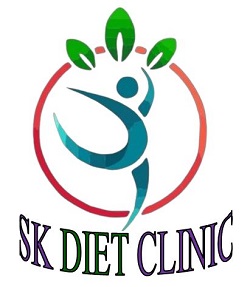Nutrition plays a significant role in maintaining healthy skin and hair. Here's a brief overview of key considerations:
For Healthy Skin:
Hydration:
Stay well-hydrated to support skin elasticity and overall health. Water helps flush out toxins and keeps the skin hydrated.
Antioxidant-Rich Foods:
Consume foods high in antioxidants, such as berries, dark chocolate, and leafy greens. Antioxidants combat free radicals and promote skin health.
Vitamin C:
Include vitamin C-rich foods like citrus fruits, strawberries, and bell peppers. Vitamin C is essential for collagen synthesis, promoting skin firmness.
Healthy Fats:
Incorporate sources of healthy fats, including avocados, nuts, and olive oil. Omega-3 fatty acids contribute to skin health and moisture.
Vitamin E:
Consume foods rich in vitamin E, such as almonds, sunflower seeds, and spinach. Vitamin E helps protect the skin from oxidative damage.
Collagen-Boosting Foods:
Include collagen-boosting foods like bone broth, fish, and soy products. Collagen is vital for skin structure and elasticity.
Protein:
Ensure an adequate intake of protein from sources like lean meats, eggs, and legumes. Protein supports skin repair and regeneration.
Limit Sugar and Processed Foods:
Reduce the consumption of sugary and processed foods, as they can contribute to skin issues and inflammation.
For Healthy Hair:
Protein-Rich Diet:
Consume sufficient protein for healthy hair growth. Include sources like lean meats, fish, eggs, and plant-based proteins.
Iron and Zinc:
Ensure an adequate intake of iron and zinc through foods like lean meats, beans, nuts, and seeds. These minerals are essential for hair health.
Vitamin A:
Include vitamin A-rich foods like sweet potatoes, carrots, and spinach. Vitamin A supports the production of sebum, which nourishes the scalp.
Biotin:
Incorporate biotin-rich foods like eggs, nuts, and sweet potatoes. Biotin is a B-vitamin important for hair health.
Omega-3 Fatty Acids:
Consume omega-3 fatty acids found in fatty fish, chia seeds, and flaxseeds. These fats contribute to scalp health and hair shine.
Hydration:
Drink enough water to keep the hair hydrated. Dehydration can lead to brittle and dull hair.
Avoid Excessive Heat and Chemicals:
Minimize the use of heat styling tools and exposure to harsh chemicals, as they can damage hair.
Consult with Professionals:
Seek advice from dermatologists or nutritionists for personalized recommendations based on individual skin and hair needs.
Remember, consistent and holistic care, including a balanced diet, is essential for maintaining healthy skin and hair. Individual responses may vary, so consulting with professionals can provide tailored guidance.

